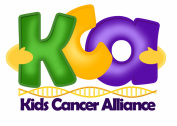ABC News story
This study was recently featured on ABC National nightly news. To view the video, please click the link below.
Survivorship
‘Survivorship’ represents a unique phase in the cancer journey continuum, beginning at the completion of primary and adjuvant cancer treatment and continuing until recurrence or death from other causes. Early survivorship is typically characterised as a period of transition; during this period issues related to diagnosis and treatment diminish in importance, while other issues, such as management of late effects, rehabilitation, health promotion, and psychosocial support needs, increase.
After treatment, the survivor’s oncology team may take less responsibility for their healthcare needs and the survivor will, in most cases, be referred to primary/community care. The Institute of Medicine’s report ‘From Cancer Patient to Cancer Survivor: Lost in Transition (‘the IOM’ report) identified the survivorship phase as a time when cancer patients can be confused about the role of various health care providers in their ongoing care and even what should constitute appropriate follow up care.
The survivorship phase is therefore increasingly recognised as one which is fraught with ill-defined pathways of care.
After treatment, the survivor’s oncology team may take less responsibility for their healthcare needs and the survivor will, in most cases, be referred to primary/community care. The Institute of Medicine’s report ‘From Cancer Patient to Cancer Survivor: Lost in Transition (‘the IOM’ report) identified the survivorship phase as a time when cancer patients can be confused about the role of various health care providers in their ongoing care and even what should constitute appropriate follow up care.
The survivorship phase is therefore increasingly recognised as one which is fraught with ill-defined pathways of care.
What this study aims to achieve
Our team’s body of work aims to systematically develop an evidence-based model of best care for the LTFU of paediatric cancer survivors by first investigating the needs, preferences, and barriers to care among survivors of childhood cancer and their parents (if under the age of 16 years).
Would you like to learn more?
If you would like to learn more about the Long Term Follow-up study, please contact the study coordinator Dr Christina Signorelli: [email protected]
